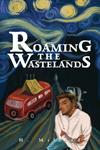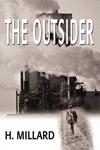 |
|
After he recently called some blacks names because he believed they were heckling him during a performance he was giving, Michael Richards, who played Kramer on "Seinfeld," has been all over the place with his mea culpas. And, the whole matter has been done to death in the press. Well, maybe not. Perhaps there are deeper lessons about the human condition and nature itself that can be addressed by using this incident, or, to be more precise, one column about it, as a jumping off point. So, dear reader, we jump.
On November 14, the Los Angeles Times ran a column by Michael Shermer, about this Kramer incident, entitled "He's a racist. So are you. So am I."
Now, I don't want to get things muddled up over semantics or over Mr. Shermer's personal views, because those things are a distraction from my points, to follow, about the nature of life in general, and humans in particular. However, Mr. Shermer's views, if I understand them correctly, do seem reflective of the zeitgeist concerning race and genes in our present Dark Age.
Shermer, who is also a columnist for Scientific American and the publisher of Skeptic magazine, tells readers that he's a liberal. Of course, it wasn't really necessary for him to tell us this. His bias was made clear when he tried to explain "racism" without really defining the term and then by relying on nurture over nature arguments to try to explain what he has just not defined. It was also clear when he sprinkled his column with unsupported, but predictable (look at me I'm not a racist) emotional words, phrases and sentences such as: "the sin of all humanity [Shermer's undefined racism], "the insidiousness of racism," and "Only when all people are considered to be members of one global in-group (in principle if not in practice) can we begin to attenuate these out-group associations." Huh? Despite Shermer's parenthetical fuzzy phrase about "principle/practice," this sure sounds like a call to blend oneself away--which can happen if one doesn't know us from not us.
Shermer never recovers from his initial error of not clearly defining racism and he then misses the apparent target or point of his column--overcoming racism (?)--by a mile because of this flinch at the trigger end of things. Still, he backs into some moments of truth about nature. For example, to explain why humans notice race, he writes "We are by nature sorters." So, maybe, Shermer really is defining racism after all, kind of, but he's calling it "sorting." But, if sorting/racism is natural, as he just wrote, then why does Shermer apparently think it's something to be overcome, and why does he call it a sin of humanity?
In truth, sorting, in this context, is self and group preservation. It's spreading the genes of us as opposed to the genes of not us (no matter who the "us" and "not us" are). It's survival of the fittest. It's holding off extinction and nothingness. It's the natural way of existence. It's change and possible evolution. Sin? Not even close. It's a virtue--if we consider survival a virtue--and how can we not? At any rate, we are our genes and our genes are us. Change our genes and we become "not us" anymore. If we change our genes, so that these genes that are expressed in us are no longer expressed in our offspring, this means that we have sorted incorrectly and we die off as the unique types we are. In other words, if our children don't look like us in important ways, we have failed in making more of us. There'll be more about this looking like us as you read on, but keep the idea of looking, as in our sense of sight, in mind.
This sorting--this racism--isn't even a uniquely human trait; it's the same with all animals (plants too, but it'd take too long to get into this here). As far as we know, all animals have a sense of survival that requires them to know the difference between us and not us--Shermer's sorting. This sorting and our survival as individuals and as members of a like group of individuals with certain gene frequencies is accomplished via, and dependent on, the senses. That's why we have our senses. Yes, dear friends we, who arrogantly claim to be just below the angels, have as our primary purpose, in being alive, the mechanistic propagation of our particular genes--and this is the same purpose for all other living things. This is not to say that we humans haven't invented other more noble sounding purposes for ourselves, or even that we are trapped into propagating evolutionary dead end genes because that's "nature," but let's not delude ourselves into thinking we, alone of all living things, are somehow above nature.
The king of human senses is sight. This is our primary method of sorting. We mostly understand the world around us and we survive by what we see. Sight is also important for many other animals, but many are more dependent on other senses to tell us from not us. Male canines, it may be divined, would not find a doggy Playboy full of pretty female dogs of much interest. The king of canine senses is smell. And, yes, this talk of senses is relevant. Our senses are wired into our mating instinct and it is wired into our survival instinct. We survive, by producing more of us who live long enough to produce even more of us. To succeed and spread our particular genes, we must know who is us and who is not us.
This is so, because when we mate, we supply half of the genes to the new child and our mate supplies the other half. If we have mated like with like, the new child will look more like us (have our phenotype) and will, presumably, have more of our genotype. Just as a reminder, phenotype refers to the observable, outward effects of our genes, and genotype refers to the usually unseen blueprint within which gives rise to our phenotype. Thus, if someone looks like us outwardly they are probably like us inwardly, and their survival is, in a sense, also our survival--the survival of us--not as conscious individuals in these other individuals, but as the similar genes that we both carry.
Shermer seems to get the nurture vs. nature concepts all mixed up when he cites a Harvard study where people are sorted by the subjects into good and bad columns based on photos flashed before the subjects' eyes and where it appears that European Americans are most often sorted into the good column and African Americans are sorted into the bad column--even by African Americans themselves--"no matter how color blind we all claim to be."
And, what does Shermer falsely, perhaps, conclude from the study? Here's a clue: Remember that Shermer said he's a liberal. Right. Shermer concludes that cultural associations (read nurture) have us prefer white faces to non-white faces, young people to old people, thin people to fat people, straight people to gay people, etc.
Actually, Shermer's conclusion is hasty. In fact, we might prefer what we prefer because what we prefer is more likely to result in our survival. Young people are more fertile than old people. Thin people are generally healthier and live longer than fat people and thus have more years in which to reproduce. Straight people, it should be no surprise, produce more of us than gay people.
However, if what I've written above is correct, then why would African Americans put White faces in the good category and Black faces in the bad category as indicated by Shermer? The answer, again, is survival. To understand this, we have to make a distinction, here, between white nature and black nurture. Whites probably see white faces as good because they see similar phenotypes in the pictures and this would, at a basic "nature" level, be good for the survival of their genes. Blacks may see White faces as good, because White faces are usually attached to people who are less likely to attack them--and this relates to the different violent crime rates between Whites and Blacks. Thus, the Black response is probably in the category of nurture and is a learned response to the world around them. Whites just don't appear to be as dangerous to them for their survival.
Now, in all of this discussion about nurture vs. nature it's important to remember that one of the things that nature supplies us with is adaptability so that we can survive. In other words, we can learn. And, in learning we are able to do some sorting based on what we've learned. This can be good, when we sort correctly or it can be bad when we sort incorrectly. And, these two terms "correctly" and "incorrectly" refer back to whichever helps us survive.
In the final analysis, all healthy individuals with minds not confused with artificial beliefs and propaganda, want to survive. If we are intelligent and well informed, we know what survival really means and we do not seek to override true nature. The difficulty for us as human beings is to understand true nature from various falsehoods that spring up and which are presented as though they are our true nature in every age. |
|
# # # |
|
THREE BOOKS BY HARD TO PIGEONHOLE H. MILLARD All three books are now listed on Amazon.com. The lefties at the OC WEEKLY said Millard is one of OC's most frightening people. "Millard is an important writer" New Nation News |
 |
Ourselves Alone & Homeless Jack's Religion |
 |
ROAMING THE WASTELANDS |
 |
THE OUTSIDER - (ISBN: 0-595-19424-9) |
| Views expressed by guest columnists, reporters and external links not necessarily those of the editor of New Nation News but hopefully of some interest |